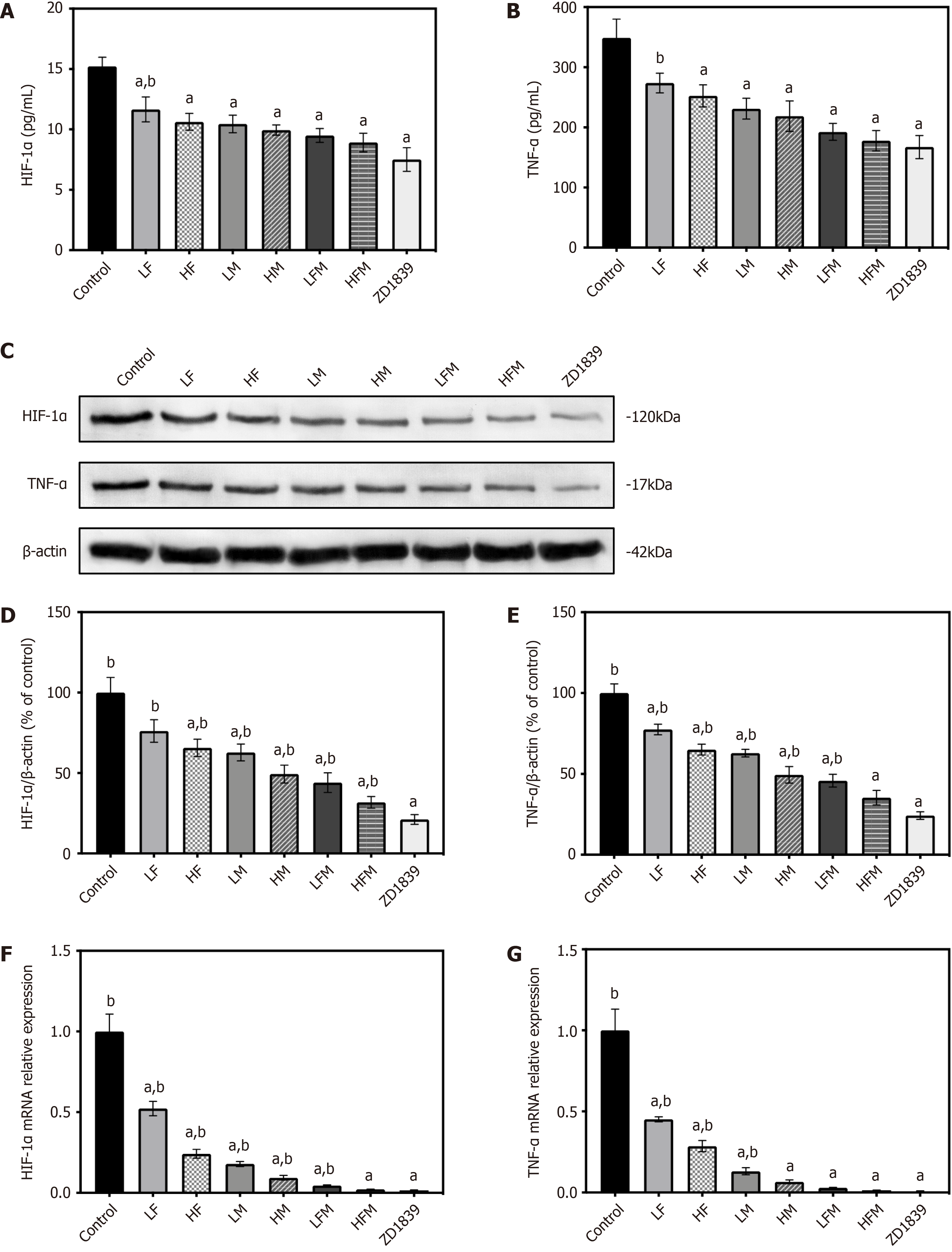Copyright
©The Author(s) 2022.
World J Gastrointest Oncol. Feb 15, 2022; 14(2): 450-477
Published online Feb 15, 2022. doi: 10.4251/wjgo.v14.i2.450
Published online Feb 15, 2022. doi: 10.4251/wjgo.v14.i2.450
Figure 8 The effect of frankincense and/or myrrh on HIF-1α and TNF-α.
A and B: The secretion of HIF-1α and TNF-α in tumor body was detected by enzyme-linked immunosorbent assay; C-E: The protein levels of HIF-1α and TNF-α in tumor body, the protein expression indicated with Western blot, and β-actin was used as internal control; F and G: The mRNA levels of HIF-1α and TNF-α in tumor body, the mRNA expression was analyzed using reverse transcription-polymerase chain reaction, with GAPDH was reference gene. LF: Low dose of frankincense extract; HF: High dose of frankincense extract; LM: Low dose of myrrh extract; HM: High dose of myrrh extract; LFM: Low dose of frankincense + myrrh extracts; HFM: High dose of frankincense + myrrh extracts. Data represents the mean ± SE. aP < 0.05 vs the model control; bP < 0.05 vs ZD1839.
- Citation: Zheng P, Huang Z, Tong DC, Zhou Q, Tian S, Chen BW, Ning DM, Guo YM, Zhu WH, Long Y, Xiao W, Deng Z, Lei YC, Tian XF. Frankincense myrrh attenuates hepatocellular carcinoma by regulating tumor blood vessel development through multiple epidermal growth factor receptor-mediated signaling pathways. World J Gastrointest Oncol 2022; 14(2): 450-477
- URL: https://www.wjgnet.com/1948-5204/full/v14/i2/450.htm
- DOI: https://dx.doi.org/10.4251/wjgo.v14.i2.450









